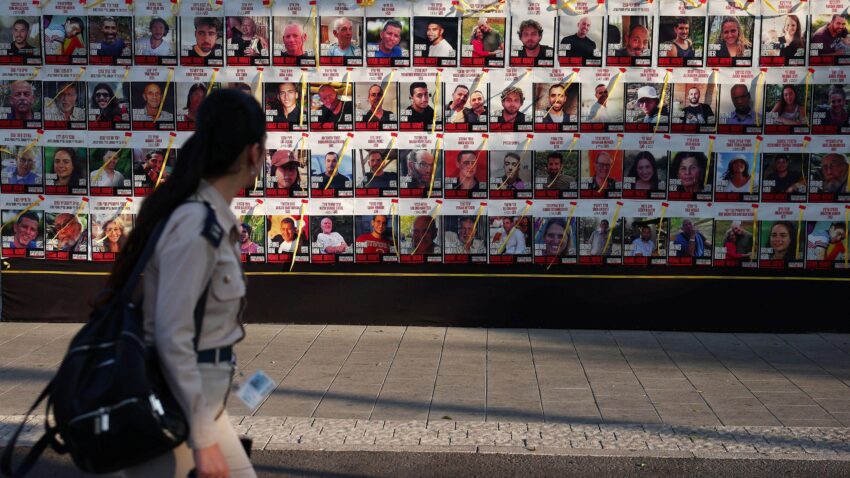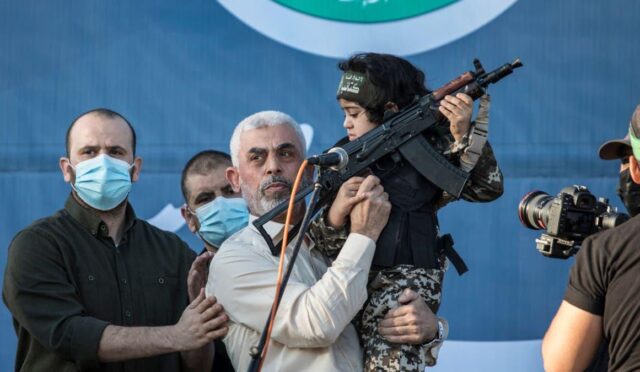Israel-Hamas Hostage Exchange: Latest Developments and Impact
On Saturday, Israel and Hamas executed their fifth hostage-prisoner exchange amidst a fragile ceasefire in Gaza. The release of three Israeli hostages drew mixed reactions, as their frail and disoriented appearances raised concerns among family members. Simultaneously, Israel released 183 Palestinian prisoners, with seven requiring hospitalization due to reported mistreatment in custody as highlighted by the Palestinian Prisoners’ Club.
This most recent exchange follows ongoing negotiations for a more permanent ceasefire, which began last month. The exchange occurred shortly after controversial remarks from former President Donald Trump, who suggested that the United States should take control of the Gaza Strip, a statement that provoked widespread international outrage.
Details of the Hostage Exchange
According to the Israeli military, Or Levy, Ohad Ben Ami, and Eli Sharabi were the three hostages returned, all of whom were captured during Hamas’s attack on October 7, 2023. While their release was celebrated by crowds in Tel Aviv, who witnessed the event via live footage, the joy was overshadowed by worries over their health, as all appeared visibly weakened.
Yochi Sardinayof, a relative of Sharabi, expressed her distress over his condition but remained hopeful for his recovery, stating, “I’m sure he will now receive appropriate treatment and he will get stronger.” This sentiment reflects the mixed emotions surrounding the exchange, where relief is tempered by the harsh realities faced by the hostages.
Concerns Over Treatment of Hostages
The handover was met with criticism for its orchestrated nature, including forced statements from the hostages urging for the continuation of talks surrounding the truce. The Hostages and Missing Families Forum condemned the “cruel spectacle” and shared their concerns over the disturbing images that emerged.
Israeli Prime Minister Benjamin Netanyahu’s office described these images as shocking, while President Isaac Herzog decried the treatment of the hostages, labeling the event as a ‘cynical and cruel spectacle’ that highlighted the suffering endured during their captivity.
The Context of the Hostage Crisis
Sharabi, 52, and Ben Ami, a 56-year-old dual German citizen, were taken from their homes during the initial assault on kibbutz Beeri. The traumatic experiences of these individuals underscore the personal toll of the conflict, particularly as Sharabi lost his wife and two daughters in the attack.
Levy was abducted from the Nova music festival, where gunmen tragically killed his wife. The harrowing stories of these hostages amplify the urgency for resolutions amid the ongoing violence and humanitarian concerns.
Reactions from Palestinian Authorities
In contrast, the release of Palestinian inmates drew celebratory responses in the West Bank, where families and supporters welcomed those freed from Israeli custody. As they emerged from the bus after being brought from Ofer prison, the atmosphere was filled with joy, yet the Palestinian Prisoners’ Club noted that many released individuals required medical attention due to the conditions they faced.
The advocacy group has consistently denounced the treatment of Palestinians in Israeli prisons, highlighting the brutality that has reportedly taken place.
The Broader Implications of the Ceasefire
To date, Gaza militants have released 21 hostages in exchange for hundreds of Palestinian prisoners. Last week, five Thai nationals freed from Gaza were discharged from an Israeli hospital and began their journey home, emphasizing the ongoing nature of these negotiations.
The ceasefire, facilitated by Qatar, Egypt, and the United States, aims to secure the release of an additional 12 hostages. As negotiations for the next phase are set to begin, uncertainty looms over the future of this fragile agreement, particularly in light of Trump’s recent comments.
Calls for Adherence to the Ceasefire Agreement
The Hostage and Missing Families Forum publicly urged the Israeli government to maintain the ceasefire. They emphasized the collective desire for hostages to return home, stating, “Now is the time to ensure the agreement is fulfilled – until the very last one.” This call reflects both the urgency and the emotional weight carried by the families of those still missing.
In the aftermath of Saturday’s exchange, Netanyahu’s office announced that an Israeli delegation would travel to Doha for further discussions, signifying ongoing diplomatic efforts to address the situation.
The Human Cost of Conflict
The October 2023 assault by Hamas resulted in significant casualties, with 1,210 fatalities reported, predominantly among civilians, according to an AFP tally. In retaliation, Israeli military actions have claimed the lives of at least 48,181 individuals in Gaza, with the majority being civilians, as reported by the health ministry in the Hamas-run territory.
The United Nations has deemed these casualty figures credible, highlighting the severe humanitarian crisis that continues to unfold as a result of the ongoing conflict.
Conclusion: The Path Forward
The ongoing hostage crisis and the delicate nature of the ceasefire underscore the complexities of the Israel-Palestine conflict. As negotiations continue, both sides face immense pressure from their respective communities to secure the release of hostages and ensure the safety of their citizens.
Moving forward, the effectiveness of diplomatic efforts will be crucial in determining whether a sustainable resolution can be reached, or whether the cycle of violence will persist.







